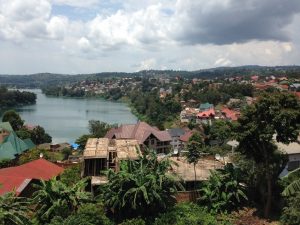Recently Completed Project and Lessons Learnt: DFID DRC’s EACP
 Integrity is proud to announce that we have successfully completed our flagship programme in the DRC – DFID’s Evidence Analysis and Coordination Programme – after four years of learning, challenges and dedicated hard work from both our staff and team of national and international researchers.
Integrity is proud to announce that we have successfully completed our flagship programme in the DRC – DFID’s Evidence Analysis and Coordination Programme – after four years of learning, challenges and dedicated hard work from both our staff and team of national and international researchers.
The Evidence Analysis and Coordination Programme was designed to use research and analysis to improve DFID’s understanding of the political economy of the DRC across a range of provinces and sectors to inform programme design and oversight. Over the past four years, Integrity, as part of a larger consortium, produced twenty-three Political Economy Analysis (PEA) reports and ad hoc research studies. These have ranged from general reports to those designed to answer specific programming questions. Examples of the variety of sectors covered in these PEAs and studies include: political governance, pay reform in the health sector, the elections, gender and the elections, civil society and mining. The research identified various barriers to, and key enablers of, change based on an analysis of how power is distributed among different actors.
“Finding the right researcher is one of the most crucial elements of a successful PEA”
— Alex Martins, Services Manager.
Additionally, a final Review of Studies was carried out by the programme to consolidate learning from this body of research, identify key findings from the Programme since 2013, and asses the overall longevity and utility of the studies. The findings from this review, led by Ben Shepherd, were presented to the DFID team in Kinshasa and London and shared more broadly with key stakeholders. Integrity also held a comprehensive internal debrief with the wider team, feeding back and reflecting on learning points to further improve performance in future research programmes.
Three lessons learned that emerged from this Review that are relevant for those thinking of conducting similar research in fragile and conflict affected environments:
1. Find the right researcher
Finding the right researcher with deep expertise in the topic and existing contacts is one of the most crucial elements of a successful PEA. One of the key difficulties is finding researchers that have the exact right combination of geographical, sectoral and political knowledge. The challenge then lies not only in finding the right researcher, but also in ensuring that they ask the right questions at the right time to obtain the necessary information in a rapidly evolving context.
2. Recognise the long-term value of PEAs
It is important to ensure that the studies remain a living body of work by dedicating resource to doing periodic reviews of the findings over time. This proved extremely beneficial when the final Review of Studies was carried out on the programme as a mechanism for consolidating learning.
3. Use studies as an efficient way of filling gaps in donor understanding
This programme demonstrated that PEA can also be used as a tool by clients to identify the ‘unknown unknowns,’ which can be essential to inform better programming. These ‘unknown unknowns’ can then be translated into detailed research plans with clear questions.
Integrity commends Alex Martins and Lydia Levy for all their work on the programme as they were instrumental in its successful delivery. We look forward to expanding our portfolio in the DRC and to continue using high quality research as a tool to inform HMG and other donors on better programming in fragile and conflict affected states.
